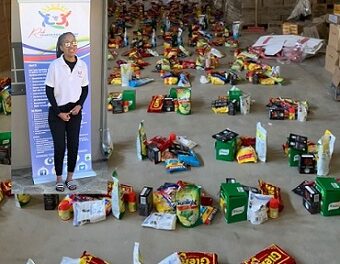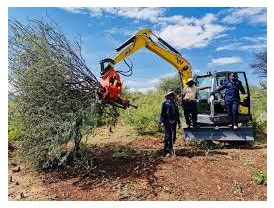
Namibia’s corruption watchdog, the Anti-Corruption Commission (ACC), will train the town council of Oshakati in how to assess itself whether it is living up to the ideal of a corrupt-free town council or not.
The Corruption Risk Assessment (CRA) exercise for Oshakati Town Council will take place during the week of 8 – 12 August 2022.
“Therefore it is necessary and important to conduct a public consultation with all Oshakati Town Council stakeholders as per the Strategic Objective 4 of the National Anti-corruption Strategy and Action Plan 2021-2015,” said Ms Ebba Hanghuwo who is the Public Education and Corruption Prevention Officer of the ACC stationed at Oshakati.
“The public consultation is necessary for stakeholders to give their views and perceptions on corruption practices within Oshakati Town Council. Before we engage the town council, we first want to get something from you as stakeholders of Oshakati Town Council.”
Hanghuwo was speaking today in Oshakati at a meeting called to discuss the corruption situation at the Oshakati Town Council and share ideas as to how the situation can be addressed.
The meeting consisted of individuals from various sectors in Oshakati such as leaders of government institutions, church leaders, community organization leaders, and business people.
Hanghuwo explained that corruption affects everyone in society. “Corruption can affect you either directly or indirectly,” she said. “Corruption leads to unemployment, poverty, underdevelopment, inequality in terms of education, jobs and development, and poor service delivery.”
She also stated that the basic definition of corruption is “abuse of entrusted power for personal gain.”
However, she said, there are various types of corruption. And one of them is what is called “quiet or silent corruption”.
“This type of corruption is hard to hear and it’s hardly seen, but it’s the most destructive.”
Examples of “quiet or silent corruption” are such as unauthorized absence from work; diverting funds from budgeted activities to non-essential activities, for example trips and parties; theft of inputs, for example subsidized seeds, medicines, farming tools and fertilisers; moonlighting (doing a second job illegally); clock watching or always coming late to work; deliberately working slowly or inefficiently so that you can demand to work overtime; changing the rules (at the town council) to suit yourself.
Mr. David N. Mwatukange who also serves as the Public Education and Corruption Prevention Officer of the ACC divided the participants into discussion groups, which then gave their feedback and some participants made proposals for the two corruption officials to take with not only to their engagement with the Town Council but also to other government institutions.
In the photo: Ebba Hanghuwo speaking to the invited stakeholders.







